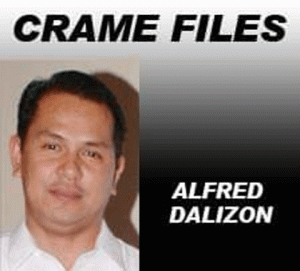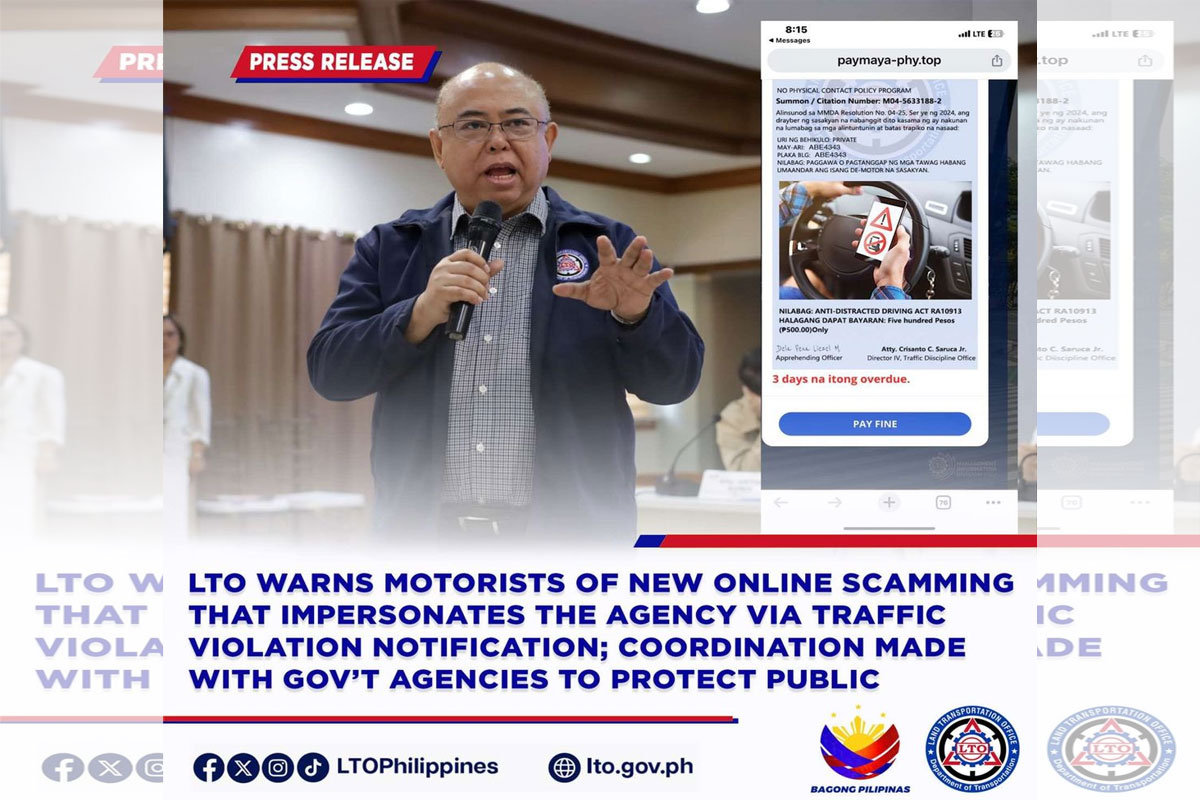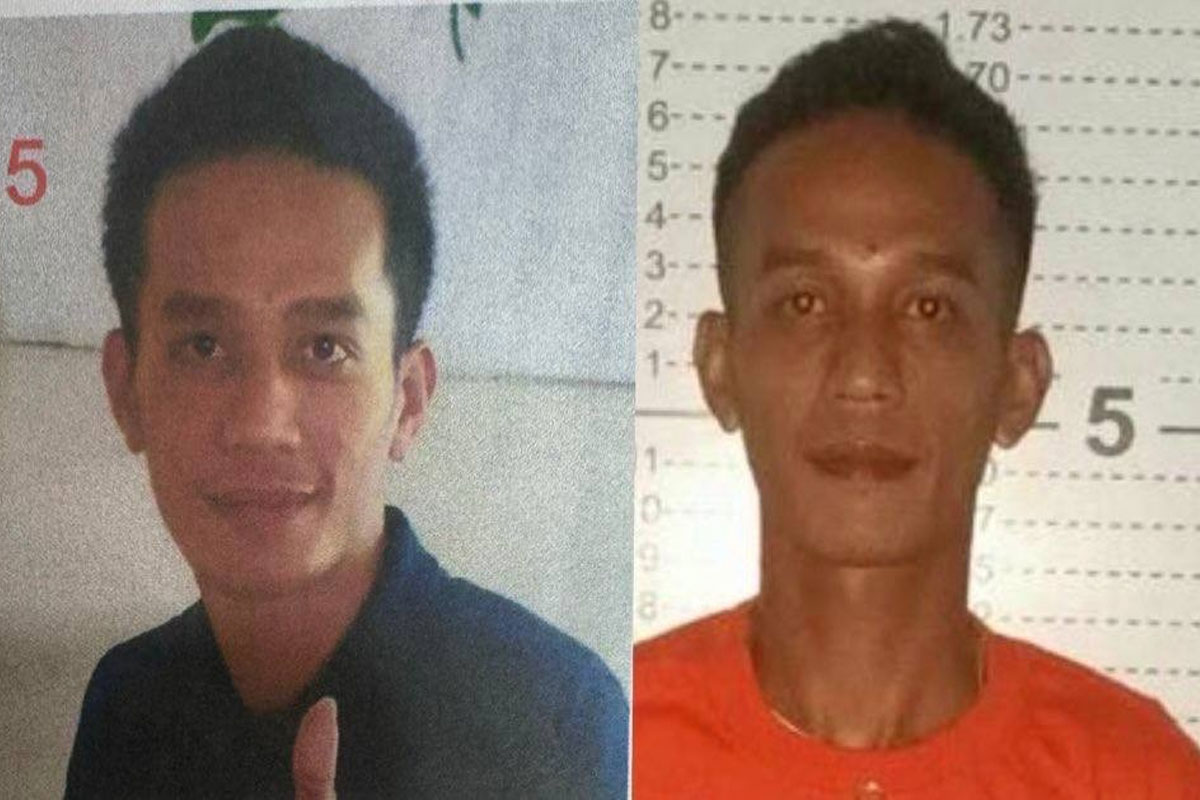
MRT BOMB THREAT SIMILAR TO BOMB HOAX IN TAIWAN, KOREA
 IT really would be good for all our law enforcement agencies led by the Philippine National Police to pour all their combined efforts to identify and arrest the person or persons behind the circulation in Facebook of a bomb hoax in Metro Manila last week which caused quite a public alarm.
IT really would be good for all our law enforcement agencies led by the Philippine National Police to pour all their combined efforts to identify and arrest the person or persons behind the circulation in Facebook of a bomb hoax in Metro Manila last week which caused quite a public alarm.
After a thorough search of Metro Rail Transit facilities which yielded negative results, the PNP leadership headed by General Benjie Acorda called for a vigilant sobriety amid the Facebook post which warned of a powerful bomb which is set to explode inside an MRT facility.
My friends from the intelligence community said the bomb hoax has turned out to be ‘very similar’ to threatening messages which caused a massive security alert in Korea and Taiwan since last year and all messages purportedly were sent by the same person: a Japanese national named ‘Takahiro Karasawa.’
“Incidents of this nature are always taken seriously with utmost caution and tact because of the undue panic it may cause in the public. Continuing investigation is currently underway to determine the origin of such threats and identify the individual behind the malicious email,” said PNP Public Information Office chief, Colonel Jean Fajardo.
Col. Fajardo said that the PNP in coordination with concerned government agencies inspected the MRT Line 3 on Friday and detected no threat. Security measures have already been beefed up in all transportation systems across the country to ensure the safety and security of the riding public, she added.
Following the incident, Gen. Acorda reminded the public anew to refrain from posting and sharing unverified information to prevent panic and cited the fact that persons spreading bomb hoaxes can be sent to jail upon conviction.
Under Presidential Decree 1727 or the Anti-Bomb Joke Law in relation to Republic Act 10175 or the Cybercrime Prevention Act, malicious dissemination of false information or the willful making of any threat concerning bombs, explosives or any similar devices or means is unlawful, and violators of the law may face imprisonment of not more five years or a fine of not more than P40,000.00 or both upon the discretion of the court.
Gen. Acorda has ordered a full investigation into the person or persons behind the said alarming social media post. Officers from the PNP Anti-Cybercrime Group and different PNP intelligence units are already working together to identify and arrest the threat sender or senders.
“We are now assessing everything and so far, we are inclined to believe that it is more of a hoax,” said the top cop.
Security inside all MRT and Light Railway Transit Station facilities and other places of public convergence in Metro Manila and the rest of the country are considered tight year-round.
I learned that PNP anti-cybercrime experts are examining the Facebook post from one ‘Takahiro Karasawa’ who said ‘I set a high performance bomb in a Metro Manila Rail Transit system facility.
“Those bombs will explode at approximately 3:34 p.m. on September 8. For the sake of world peace, a lot of people will die. To destroy the Philippine government, this time it will be done. I’m watching 20 years later.” The sender identified himself as a ‘Japanese lawyer’ from 2-2-15 Mita Minato-Ku, Tokyo.’
However, I learned that similar bomb hoax have been sent by the same person in Korea and Taiwan. A Korea Times story last August 17 said that Korean police “are looking into an email bomb threat sent to the Supreme Court and other locations.” Korean police searched the purported targets but found no explosives.
It was the 5th bomb hoax sent thru email apparently from Japan, the Korea Times reported. The Korea Times said that the ‘email, which was received just past midnight, claimed that “high-powered bombs with needles” had been planted at the Japanese Embassy, the Supreme Court and city halls across the country, and would go off from 3:34 p.m. Friday to 2:07 p.m. Saturday.”
The bomb threats sent thru email were similar to the one that was circulated thru the social media last week. “I set a high performance bomb in a Metro Manila Rail Transit system facility. Those bombs will explode at approximately 3:34 p.m. on September 8,” the message sent by one ‘Takahiro Karasawa.’
The sender identified himself as a ‘Japanese lawyer’ from 2-2-15 Mita Minato-Ku, Tokyo.’ However, the Korea Times in its August 17 article said that “the email was sent in the name of a Japanese law firm with the same address as the one used for the four previous bomb threats received in the country in recent weeks.
The real Takahiro Karasawa, a practicing lawyer in Japan said “this is wrong’ as he bewailed the fact that his name is being misused without his permission.
“This is wrong. I think my name is being misused without my permission. Some extremists are committing these crimes, as these types of offenses are sometimes not regulated in Japan,” Karasawa said.
The Taiwan police said they are taking steps to ask Japanese police for cooperation in their ongoing investigation to identify and arrest persons stealing the accounts of lawyers and their law firm.
A series of bomb threats via email last month claimed that schools and government offices in Taiwan have been targeted by such false bomb warnings.
The Taiwan Strait also reported in 2021 that a 24-year old Chinese student in Taiwan who goes by the name ‘Zhang’ was identified as the person who used the name Takahiro Kasarawa to frighten two female students.
The social media post in Taiwan said that a 24-year old Chinese student in Taiwan surnamed ‘Zhang’ was identified as the man who sent emails under the name ‘Takahiro Karasawa’ when he claimed that he had planted bombs in airports, railway stations and the Taipei 101 skyscraper.
The Taipei Times even had an article on May 26, 2023 which said that the spate of hoax bomb threats in Taiwan prompted local authorities to ask China to apprehend the suspect in accordance with the Cross-Strait Joint Crime Fighting and Judicial Mutual Assistance Agreement.
“However, Beijing has so far not responded to this request. This raises suspicions about whether the bomb warnings are a ‘gray -zone operation’ orchestrated by China. Everyone knows how strictly China controls the Internet. Anyone who is found to have circumvented the ‘Great Firewall of China’ to access foreign websites may be fined 1,000 yuan (US$142) which is twice as high as the fine for using illegal drugs,” it reported.
“That Zhang could continue sending e-mails threatening Taiwan for three years-especially during periods when Taiwan is receiving international support against China’s military and non-military threats-makes one suspect that even if the Chinese government does not authorize his activities, it at least tacitly approves of them,” the Taipei Times reported.
Here in our country, the law says that persons creating bomb scares or pranks, upon conviction will receive a prison term of not less than five years and a P40,000 fine or both upon the discretion of the court.
PDE 1727 declared as ‘unlawful the malicious dissemination of false information or the willful making of any threat concerning bombs, explosives or any similar device or means of destruction and imposing penalties therefor.’
The law is very specific in saying that ‘any person who, by word of mouth or through the use of the mail, telephone, telegraph, printed materials and other instrument or means of communication, willfully makes any threat or maliciously conveys, communicates, transmits, imparts, passes on, or otherwise disseminates false information’ about bombs and bomb threats.
In the past, police have arrested a number of people found responsible for bomb scares.
They include a 22-year old Grade 8 student who was tagged as the one responsible for a bomb scare that hit the Ponciano Bernardo High School in Quezon City early this year.
For everybody’s information, Elfrank Emil Anthony Kadusale, an alternative learning system student of the same public school was identified as the one who posted a message on the school’s Facebook page that he had planted a bomb on campus.
He also demanded P100,000 to be given to a teacher in return for not blowing up the school. It turned out to be a hoax as police found no explosive. Kadusale’s mobile phone was found to be the source of the bomb hoax.
Officials said bomb scares not only trigger the suspension of classes in a school or work in a government or private office but also causes a wastage of police manpower and resources as they respond to the situation and check a given area for explosives.
Just like in Japan, Taiwan and our own country, those fake bomb threats have caused a lot of trouble for law enforcement agencies and really disrupted operations of concerned facilities. Thus, the need to have them identified and sent behind bars.























